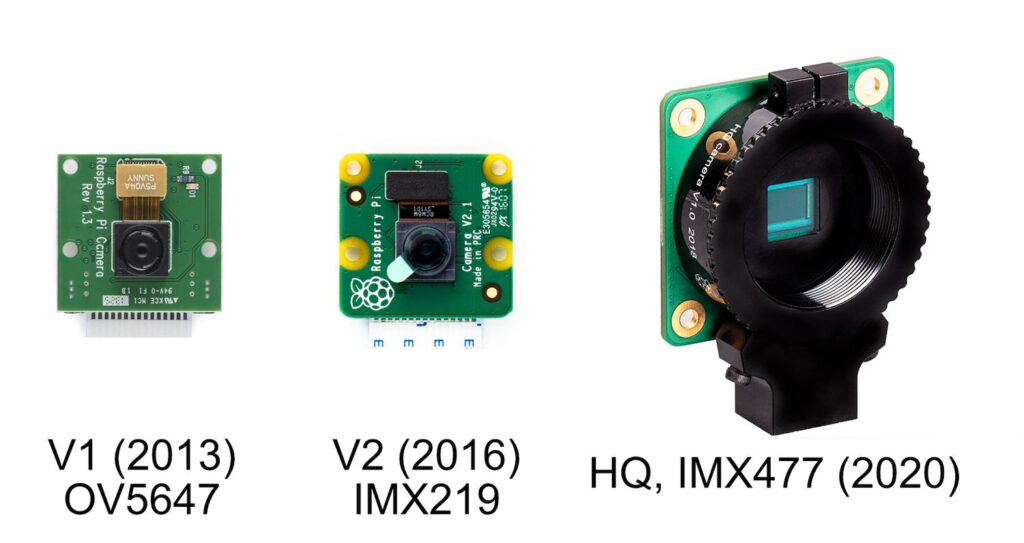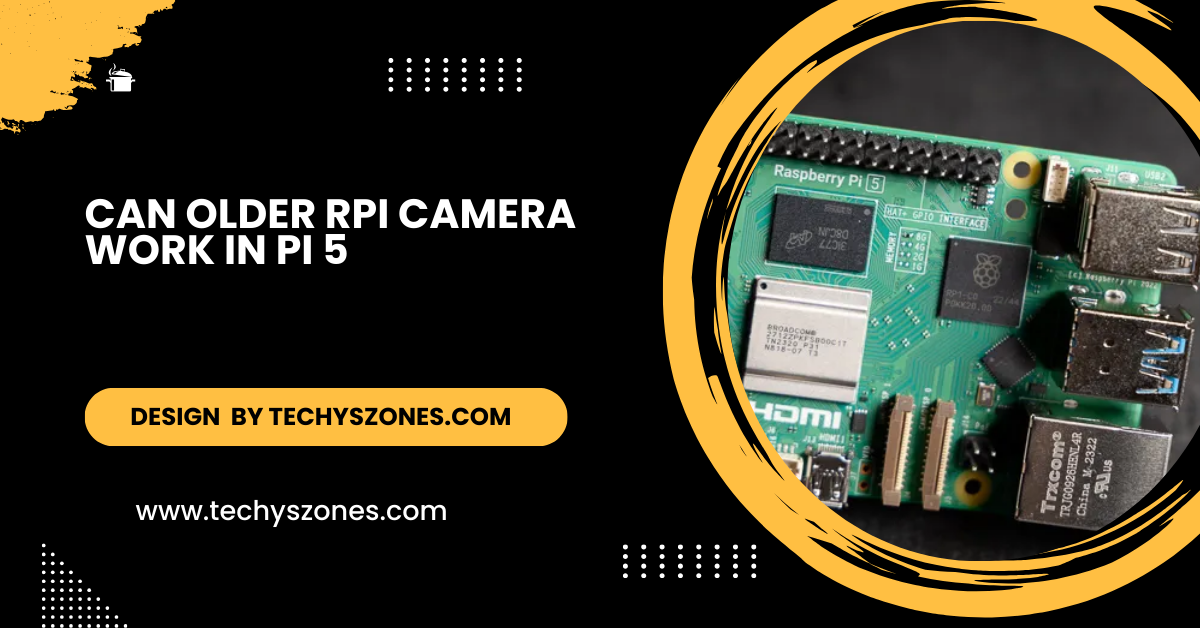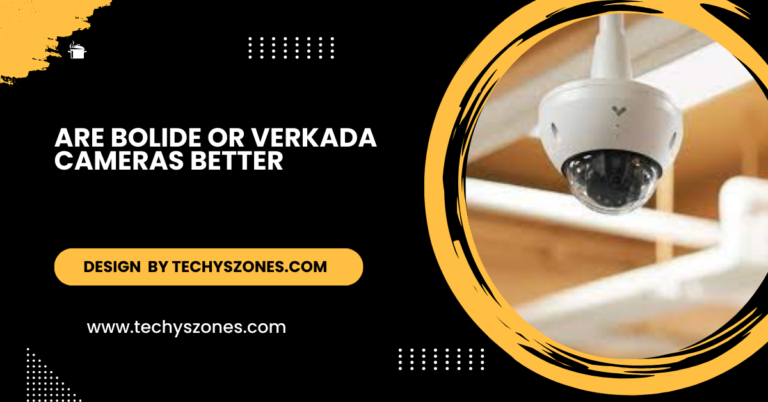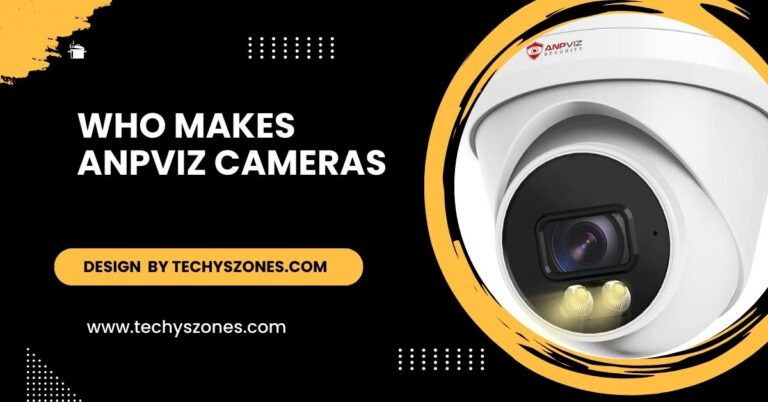Can Older Rpi Camera Work In Pi 5 – Performance, Compatibility, And Tips!
Discover if older Raspberry Pi cameras are compatible with the Raspberry Pi 5 and learn how to optimize performance with updated software and setup tips.
InThis article explores the compatibility of older Raspberry Pi cameras with the Raspberry Pi 5. We cover physical and software compatibility, performance, and offer tips to optimize older cameras. Whether you’re sticking with your setup or upgrading, this guide helps you decide.
A Brief Overview of Raspberry Pi Camera Evolution:

Before jumping into the specifics of compatibility with the Raspberry Pi 5, it’s helpful to understand the evolution of Raspberry Pi cameras.
The Raspberry Pi Foundation has released several camera modules over the years, each designed to meet different needs.
- Raspberry Pi Camera Module v1: Released in 2013, this was the first official camera for the Pi. It featured a 5-megapixel Omni Vision sensor and was capable of capturing 1080p video at 30 frames per second (fps).
- Raspberry Pi Camera Module v2: Introduced in 2016, the second-generation camera came with a significant upgrade a Sony IMX219 8 megapixel sensor. It also offered 1080p video but with better image quality and low-light performance.
- Raspberry Pi High Quality Camera: Launched in 2020, this camera featured a 12.3-megapixel Sony IMX477 sensor and supported interchangeable lenses, making it a popular choice for advanced photography and videography projects.
- Camera Module v3 (if available): The newest addition, if available, could further improve resolution, frame rates, and overall capabilities, taking advantage of the enhanced power of the Raspberry Pi 5.
Now, with the arrival of the Raspberry Pi 5, users want to know if these older camera models will still work, and how well they perform on the newer platform.
Physical Compatibility of Older RPi Cameras with Raspberry Pi 5:
One of the primary concerns when upgrading to new hardware is whether existing accessories, like camera modules, will physically connect.The good news is that Raspberry Pi 5 maintains the Camera Serial Interface (CSI) port, which has been present in previous models.
This means that older cameras, such as the Camera Module v1 and v2, can be directly connected to the Pi 5 without needing any new adapters or cables.The standard ribbon cable used to connect the camera to the Raspberry Pi should work just fine. The mechanical setup connecting the camera module to the CSI port remains the same as it was for older Raspberry Pi models, such as the Pi 3 and Pi 4.
However, it’s worth noting that newer features introduced with the Raspberry Pi 5, such as enhanced GPIO performance and improved power regulation, could offer more stability and reliability when using older cameras.
Software Compatibility: Do You Need to Update Anything?
While the physical connection is simple, software compatibility can be a bit more complex. Each new Raspberry Pi model comes with an updated version of the Raspberry Pi OS, which may include new camera drivers or firmware updates.
To ensure that your older RPi camera works seamlessly with Raspberry Pi 5, you will need to:
Update the Raspberry Pi OS:
Make sure you’re running the latest version of Raspberry Pi OS on your Pi 5. Older camera modules may not work correctly with outdated software.
You can easily update your system by using the following commands Regular updates also help in patching security vulnerabilities and improving system performance, which is crucial when using your Pi for long-term projects.
- Bash
- Copy code
- sudo apt update
- sudo apt upgrade
Check for Driver Updates:
Some older camera modules, like the original v1 module, might require specific drivers that may not be installed by default on Raspberry Pi 5.Check the official Raspberry Pi documentation or community forums for any special instructions or patches.Use the Latest libcamera Libraries:
The official Raspberry Pi camera software has moved towards the libcamera framework, which provides better support for the newer Pi models.If you’re using older cameras, ensure that you’re running compatible versions of libcamera to avoid any performance issues.
Third-Party Software Compatibility:
For those working on specialized projects like surveillance, computer vision, or image recognition, third-party applications such as Motion and OpenCV are widely used.However, when moving to the Raspberry Pi 5, some of these applications may require updates to maintain compatibility with older camera modules.
Read More: What Camera Light Seal Should I Use For Canon A1 – Choosing The Right Seal!
Performance Differences: What You Can Expect
While older Raspberry Pi cameras can physically connect to the Raspberry Pi 5 and should work after software updates, performance differences are inevitable.The Raspberry Pi 5 is a significant upgrade over its predecessors, offering a more powerful processor, enhanced RAM options, and faster connectivity. Here’s how these factors could impact older cameras:
Image and Video Processing Speed:
Older Raspberry Pi models might have struggled with real-time video processing or high-resolution image capture, especially with higher frame rates.The Raspberry Pi 5’s superior hardware means that even older cameras may now perform faster. Tasks like time-lapse photography, real-time object tracking, or live video streaming will be smoother.
Resource-Intensive Applications:
If you’re using your older RPi camera for resource-heavy applications like computer vision, machine learning, or facial recognition, the Raspberry Pi 5’s processing power will drastically reduce lag and improve responsiveness. That said, the resolution and frame rate of older cameras like the Camera Module v1 and v2 may still bottleneck performance.
Lower Light Sensitivity:
Older Raspberry Pi cameras particularly the Camera Module v1 don’t perform well in low light compared to newer modules. Although the Raspberry Pi 5 will improve processing speed, it won’t change the sensor’s physical limitations, so you may want to consider upgrading to a newer camera module like the High Quality Camera for better low-light performance.
Should You Upgrade Your Camera for Raspberry Pi 5?
If you’re working on advanced projects that involve high-resolution imaging, low-light photography, or real-time video analysis, upgrading to a newer camera module might be a worthwhile investment.
The Raspberry Pi High Quality Camera or a future release like Camera Module v3 will make the most of the Pi 5’s enhanced capabilities. These newer cameras come with more advanced features like interchangeable lenses, better low-light sensitivity, and higher frame rates.
However, if you’re working on simpler projects like basic image capture, video conferencing, or casual hobbyist applications your older camera will still serve you well on the Raspberry.
FAQ’s
1.Can I use my old Raspberry Pi Camera Module v1 with the Raspberry Pi 5?
Yes, you can use the Camera Module v1 with the Raspberry Pi 5, but you may need to update your software and drivers for optimal performance.
2.Do I need any special adapters to connect older cameras to the Raspberry Pi 5?
No, older Raspberry Pi cameras connect directly to the CSI port on the Raspberry Pi 5 without any special adapters.
3.Will older cameras perform as well as newer ones on the Raspberry Pi 5?
Performance may vary; older cameras may not fully utilize the Raspberry Pi 5’s enhanced processing power, especially for high-resolution or demanding tasks.
4.How can I ensure my older camera works properly with the Raspberry Pi 5?
Update your Raspberry Pi OS and camera drivers, and use the latest libraries to ensure compatibility and performance.
5.Is it worth upgrading to a newer camera module for the Raspberry Pi 5?
For advanced projects requiring higher performance or better image quality, upgrading to a newer camera module will provide better results and utilize the full potential of the Raspberry Pi
Conclusion
In conclusion, older RPi cameras do work with the Raspberry Pi 5, but performance can vary depending on your project requirements. By updating your software and leveraging the enhanced processing power of the Pi 5, you can get the most out of your existing camera setup. For advanced tasks, upgrading to a newer camera module will unlock the full potential of the Raspberry Pi 5.







